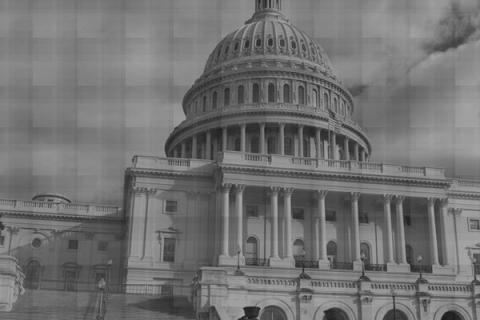If there ever was bipartisan common ground, you'd think it would exist safe from government data mining. In theory, it would seem that limited-government conservatives would oppose "Big Brother" just as much as liberal, civil libertarians. They probably do, but you wouldn't know it the way privacy-invading legislation is routinely passed with little debate on Capitol Hill.
Even if representatives are debating such issues, do their words have any potency in an era of executive fiat and convoluted corporatism?
The Washington Post's Dana Priest recently ran a huge expose on the hulking size of America's intelligence apparatus, namely the National Intelligence Agency, the largest intelligence office. Here's an illustrative excerpt:
“From the road, it's impossible to tell how large the NSA has become, even though its buildings occupy 6.3 million square feet - about the size of the Pentagon - and are surrounded by 112 acres of parking spaces. As massive as that might seem, documents indicate that the NSA is only going to get bigger: 10,000 more workers over the next 15 years; $2 billion to pay for just the first phase of expansion; an overall increase in size that will bring its building space throughout the Fort Meade cluster to nearly 14 million square feet.
More than 250 companies - 13 percent of all the firms in Top Secret America - have a presence in the Fort Meade cluster. Some have multiple offices, such as Northrop Grumman, which has 19, and SAIC, which has 11. In all, there are 681 locations in the Fort Meade cluster where businesses conduct top-secret work...
The existence of these clusters is so little known that most people don't realize when they're nearing the epicenter of Fort Meade's, even when the GPS on their car dashboard suddenly begins giving incorrect directions, trapping the driver in a series of U-turns, because the government is jamming all nearby signals...Once this happens, it means that ground zero - the National Security Agency - is close by.”
Keep in mind, the NSA requires such a physical presence if it's going to continue to collect private information by partnering with some of the largest corporations in the world.
Most recently, the agency has been tied to Google. Ostensibly, talks were initiated to help counter a Chinese-born cyberattack on the internet company's networks. Never mind the fact that an agency was created under the Department of Homeland Security specifically for this purpose. In March of last year, Rod Beckström – ex cyber-security chief of the National Cybersecurity Center – revealed in a resignation letter that Homeland Security is not, in fact, in charge of the nation's cyber-security. It is the NSA who "currently dominates most national cyber efforts," Beckström says.
Citing a lack of funding and clear power grabs by the NSA, Beckström left his position with this warning about the administration's willingness to let the NSA co-opt the NCSC's efforts:
“While acknowledging the critical importance of NSA to our intelligence efforts, I believe this is a bad strategy on multiple grounds. The intelligence culture is very different than a network operations of security culture. In addition, the threat to our democratic processes are significant if all top government network security and monitoring are handled by any one organization (either directly of indirectly). During my term as Director we have been unwilling to subjugate the NSCS underneath the NSA.”
The government's and google's claims that they are only interested in investigating a foreign threat is suspect after a whistle blower at AT&T exposed the extent to which that telecom was complicit with Big Brother in the name of national security, allowing equipment to be installed at its San Francisco office which is “capable of conducting what amounts to vacuum-cleaner surveillance of all the data crossing the internet -- whether that be peoples' e-mail, web surfing or any other data.”
Even though the public outrage about this news has subsided, and the political debate concerning warrant-less wiretapping and the constitutionality of an omnipresent intelligence regime have been set to simmer on the back burner, one thing is for sure: the infrastructure to spy on citizens' private electronic data has only increased since the Bush era.

